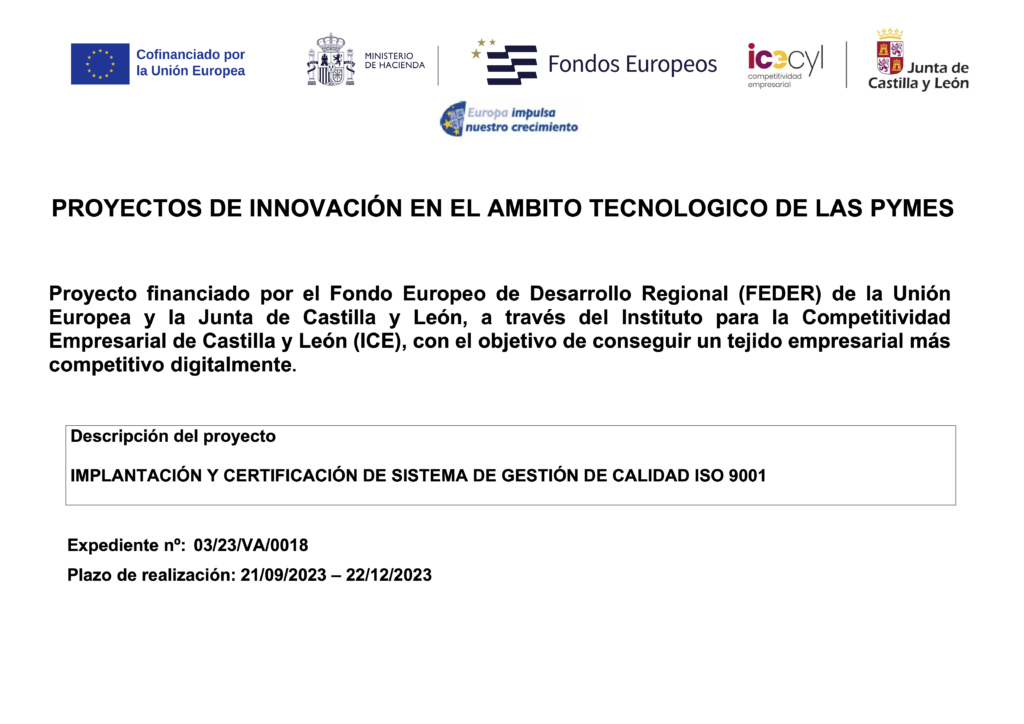Michael Novack is an Interim Management professional, expert in the launch, growth and transformation of companies and corporate projects in Europe, America and Asia. He has extensive experience as CEO and COO in the technology, media and digital industries, having intervened in more than twenty companies.
Madrid, September 15th, 2022
Due to your extensive experience as an Interim Manager at an international level, you have a global vision on the use of Interim Management in project execution. What advantages would you highlight from this service and what recommendation would you make to the organizations that hire it so that they can get the most out of it?
The main advantage of hiring the services of an Interim Management company is that the Interim Manager assigned to the project will solve situations that no one else in the organization can. It is important to clarify that Interim Managers are not simply executives with great experience. They have profiles specialized in specific types of business critical challenges that require a swift diagnosis based on the identification of threats and opportunities, a clear plan of what is necessary to solve problems by making the most of, or transforming, available assets, and an immediate execution of measures designed to achieve results and strategic impact. In other contexts it is evident that a regular soldier with an extensive military career is not necessarily prepared to solve a situation that requires the intervention of special forces, or that an urban firefighter is not qualified to put out the fire on an oil tanker. Likewise, special situations in a company require specific capabilities that corporate executives, due to the extraordinary or critical nature of these circumstances, have not developed.
The figure of the Interim Manager continues to be confused with that of an expert or specialist with great experience. A company can have great professionals in their staff and despite this, lack knowledge on a topic at a specific time. That is what consultants are for. What distinguishes Interim Managers is that we have been seasoned navigating chaos and corporate storms. We have developed professional careers that have exposed us to a wide variety of situations, usually in various industries, providing us with perspective and agility. What defines us is not the extent of our experience but the skills we have developed to manage situations of crisis or change companies are not prepared for. Interim Managers are the “special forces” of management.
Here lies the great differential value of the Interim Manager, in the relevance of the skills we have to face extraordinary situations. What defines the term “Interim” is not the duration of the contract, but of the situation that requires intervention. The moment the Interim Manager resolves it, the function ends.
As for a recommendation to obtain the highest performance of an Interim Management service, it is essential that companies trust the company providing the service and empower the person selected, since the effectiveness of their contribution will be directly related to the support they receive.
“What defines Interim Managers is not the extent of their experience, but the skills they have developed to manage situations of crisis and change companies are not prepared for. Interim Managers are the “special forces” of management.”
What do you think are the main reasons why Interim Management services are engaged? Do they vary greatly from one country to another, or from one region to another?
The main reason why companies look for an Interim Manager is because they face an unusual situation they cannot solve with the resources of their structure. A large part of these situations are critical and related to change management because organizations, like people, require additional skills to face them that are not necessary in the usual development of their operations and their lives. Most traditional executives are trained in growth and not change. Likewise, although change is becoming more frequent, it is not constant either, but sporadic, so the need for the Interim Manager service must be, by its very nature, temporary. Once Interim Managers have made the diagnosis and designed the corresponding plan, they often also help the company with the execution process, but it is not usually for periods longer than one or two years at most. Sometimes the Interim Manager is also eventually hired on a permanent basis, but I would point out that, although an Interim Manager can perform the functions of a permanent manager, a permanent manager cannot necessarily perform those of an Interim Manager.
Another of the most common reasons why companies specialized in Interim Management are used is the urgency to replace a key executive. Again, this is a critical situation as their responsibilities must continue to be taken care of during the selection period of the permanent successor; a process that can usually take six to twelve months. The contribution of the Interim Manager in this case is that, given our variety of experience, we have the ability to adapt very quickly to any environment. We are used to “hitting the ground running”, and can prevent costly disruptions in the operations of companies.
“You don’t need someone who knows your operation to explain where the fire is, you need someone to determine the causes, put it out and secure the structure, quickly.”
Finally, and in my own experience, one of the special situations in which Interim Managers provide the greatest value is rescuing and restructuring companies. The classic “turnaround” is a discipline that responds to situations in which executives of permanent structures have not been able to lead a company to success, or face critical scenarios that have put its survival at risk. All over the world, when your business is burning you call a firefighter. You don’t need someone who knows your operation to explain where the fire is, you need someone to determine the causes, put it out and secure the structure, quickly. It is not easy to land in the midst of a company in crisis, often in the face of great resistance, and in a very short time, identify the causes of the fire, who is responsible, and who can help put it out.
There are other situations, such as special project management, process optimization, cost reduction, or mergers and acquisitions, for which Interim Managers are hired. However, in my opinion, they are not necessarily the ones where the greatest contribution is applied and the most advantages of this type of service are reflected. Unlike in the critical situations that we have commented, in these we do compete with the services provided by the “regular army” of consultants, experts or “project managers”.
As for the reasons why Interim Management services are engaged, in general, they do not vary much between regions of the world, although there are cultural nuances. For example, in the U.S. change management is not such a high priority, as it is much more integrated in the corporate DNA, or in Asia, where management teams are built over years and based on very deep foundations of trust, it is less common to replace key executives temporarily. But in all the countries I know, the main reason is to address a critical situation for which the company does not have adequate resources in their staff.
Undoubtedly, we are facing a paradigm shift in the way we confront organizational transformation processes. Is Interim Management the best way for a company to face the execution of specific projects? Why not address these situations with permanent management structures?
Companies have been facing great uncertainty lately caused by the acceleration of social, political, economic and technological change. Rules vary from quarter to quarter so it is very difficult to chart stable courses over long periods. It is like trying to keep the helm steady during a storm. Although storms are becoming more frequent, and executives in any field need to develop adaptation and chaos management capabilities, the main advantage of relying on the professional services of an Interim Manager during those critical periods is that it they are provided by an expert trained in these types of special situations.
Traditionally, companies have defined their resources and designed their operations to function according to strategic premises and specific plans projected over three or five years. The evolution of the environment is exposing rigid structures, testing the capacity for transformation and agility of organizations when it comes to identifying the needs for change and, above all, executing them. This is where the relevant experience of an Interim Manager can contribute radically, by catalyzing and accelerating both processes.
It is not that Interim Managers know more or are smarter than managers of permanent structures, the distinction is that we know different things. We have been exposed on many occasions and have faced a variety of circumstances that provide us with a perspective directly applicable to these types of contexts. It is obvious that permanent managers know their organization better, but the Interim Manager is the perfect tool that will help them prepare to navigate it through certain complex environments and confront critical challenges that are not usual.
What is the situation of Spain relative to other countries where Interim Management services have been used frequently for decades, such as the UK, USA, Netherlands, France, Germany …?
In Spain, Interim Management is not fully understood yet. It is still seen as a temporary job service and the direct translation of “interim management” itself leads to even greater confusion. I believe there are two fundamental obstacles for the development of this discipline in Spain. First is the lack of knowledge about the value proposition of Interim Management and second is the resistance to the price assigned to its contribution.
Interim Management is a business function, not a hiring formula. In Spain, Interim Managers are still perceived as temporary resources that come to “plug a gap”, such as the cover of a maternity leave. Confusing Interim Management services with those of a temporary work agency demonstrates the lack of understanding of the nature of the service and the great differential value it brings.
This value is a direct and positive impact on the strategy, operation and results of a business during a critical situation that would have an inversely negative effect. Therefore, the contribution is twofold, not only improving results, but avoiding significant losses or even bankruptcy. The Interim Manager is not a “human resource” but a management tool. And as such, it should not even be selected by the HR director but by the CEO or COO like they would an investment in machinery or software that will directly impact the bottom line.
This leads to the second obstacle that reflects how immature the implementation of Interim Management services in Spain is, price sensitivity. When a company buys machinery or software to improve efficiency and performance, the expense is considered an investment which is amortizable over a certain period. No one is shocked that it costs more than the CEO, because it is a direct investment in the bottom line and the results of the company, not a personnel cost. The high value placed on Interim Managers in other countries for their specific knowledge applicable to a crisis situation at a time of urgency, is not easy to accept in Spain. This culture is portrayed very well in a historic Spanish film of the 50’s, “The Girls of the Red Cross”, where a mechanic solves a serious situation in a very simple way. He fixes a broken-down car in a minute and charges an amount the owner finds outrageous for “tightening a screw“. The great Spanish actor, Toni Leblanc, replies that tightening the screw was free. The charge was for knowing which screw to tighten and start the car again so the client could continue his journey. Another classical Spanish author, Quevedo, already said and Machado, the poet, reminded us of that wise phrase: “Only a fool confuses value and price.” And the truth is that determining the price of Interim Management services is always tricky. The formula of charging per day, or per hour, which is the usual one, is, in fact, inconsistent with the value proposition itself, since the cost should be directly proportional to the impact on the company’s result. How much is fixing a broken company worth? Or putting out a fire that could destroy it? These are questions that I always answer with a brilliant advertising campaign slogan, “what do clouds smell like?” However, and to facilitate the articulation and terms of service, Interim Management is charged with hourly rates or “day rates”, which correspondingly place it within the scope of professional consulting services fees and subject to what the company is willing to pay.
“The Interim Manager is not a “human resource” but a management tool. And as such, it should not even be selected by the human resources director but by the CEO or COO like they would an investment in machinery or software that will directly impact the bottom line.”
In the countries you mention, where this proposal and contribution of value are well understood, US, UK, France, Germany or the Netherlands, day rates of $2,000 are common, while in Spain, even half of this fee is often considered scandalous and even offensive. The common response of “But then you’re going to make more than the CEO!” sums up this disparity between the perception of value and price in Spain. Add this to the cultural nuances I mentioned before. In my experience, I have found that the Spanish job market is driven, to a high degree, by trust and loyalty which are often valued even more than results. The arrival of a professional with great experience and training, who rides in to solve a situation that permanent managers have not been able to solve, and who also makes more money than them, is usually perceived as a threat or an affront. Instead of welcoming an assistance that is momentary and will benefit everyone, staff managers frequently interpret the trust and delegated power placed on the Interim Manager as a lack of confidence in them. This often becomes a major obstacle that the Interim Manager must manage tactfully as the success of the mandate is almost always very difficult to achieve without the involvement and support of the entire team.
On the upside, it is true that, despite the unawareness and resistance commented, there is more talk about Interim Management in Spain lately thanks to the information that organizations such as the Business Institute of Interim Management and AIME have communicated for years. The flexibility it offers and the broad spectrum of managerial talent available, local and global, is increasing the number of services hired significantly. I trust that the results we deliver will reduce the hesitations about the benefit of the value delivered by Interim Managers and the companies providing this service which is gradually growing in Spain.
We know that in other countries public bodies engage Interim Management services. However, it seems that in Spain this is not the case. Can you tell us what the causes are?
It is true that outside Spain, especially in northern Europe and the US, it is common for public entities and government administrations to hire Interim Management and consulting services. However, in Spain this practice has not yet been widely adopted. In my opinion, I think it is fundamentally due to the bureaucratic complexity of the administration and to political sensitivities. The procedures for contracting services, legal tenders and counsellor appointments are mixed with the figures of “interim” advisors who, frequently, tend to become permanently “tenured” public servants, and I don’t even want to imagine the headlines reading “the advisor of the Industry Minister makes twice the minimum monthly wage of a Spanish worker in one day…”
Again, the main obstacle is cultural, given that in the U.S., for example, it is perfectly understood that a qualified professional, or a prestigious consulting firm, can charge Government administrations or public entities hundreds of thousands of dollars for contributing specialized knowledge that they lack and need. The irony is profound since politicians and public administrators should be the Interim Managers par excellence, the best qualified and the best paid, since their impact would be reflected in the balance sheet of the most important companies, our States.







